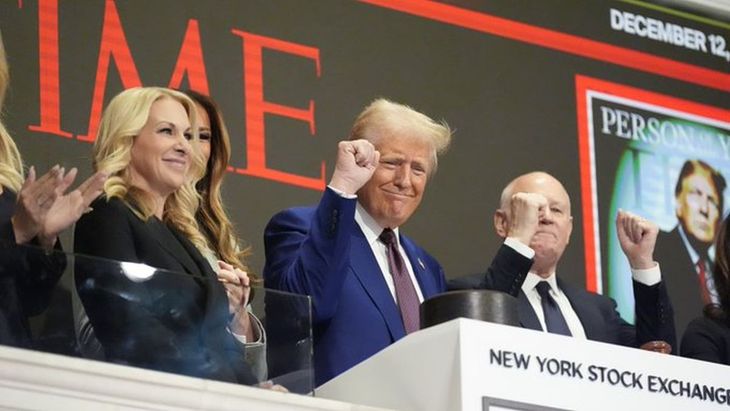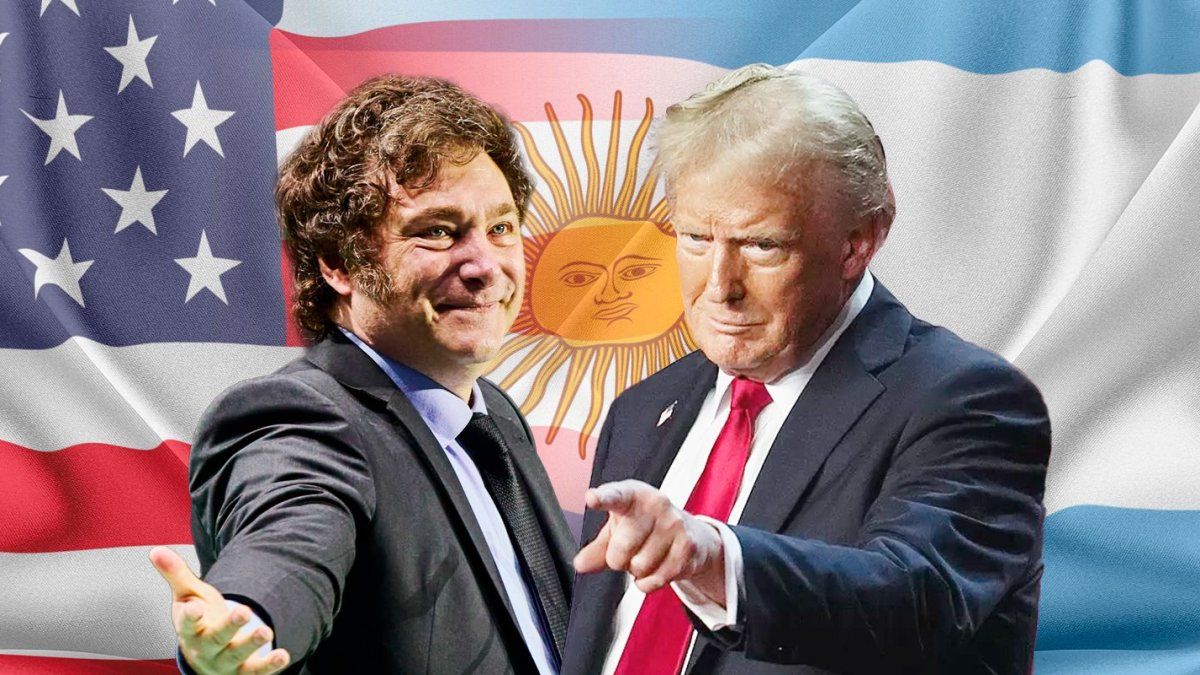donald trump He will assume the presidency of the United States for the second time this Monday, in an economic context that combines opportunities and risks, both globally and also for Argentina. His return to power refers to a change of administration, yes, but it also ushers in a change in the economic policies that marked his first term.
The question that occupies the global agenda – and which we must echo – is How the president-elect will handle the complex combination of economic growth, inflation and debt facing the largest economy in the world.
Needless to say, during his first term, Trump distinguished himself for his expansive tax policies: tax cuts, deregulation and an aggressive approach to international trade. Despite the controversy, the analysis shows that his policies boosted economic growth, reduced unemployment and increased investments in certain sectors. But the “paying god” of that growth was the debt, which skyrocketed above 100% of GDP, and the growing social inequality, factors that will mark the scenario of its return.
The differences with 2017 and the problem of inflation
A relevant point that should be mentioned is that, unlike 2017, when inflation was controlled, Trump comes to power in an environment of rising prices. Inflation, which reached historic peaks in the post-pandemic, is one of the main headaches for the outgoing Biden administration, which, although it mitigated previous levels, cost it the election. The latest reports show that inflation appears to have moderated, but remains high compared to historical standards. Trump’s challenge will be to find the balance between keeping his promise of tax cuts and controlling the inflationary imbalance without stifling growth.
This is where one of his main promises comes into play: the president-elect has predicted a return to “America First” fiscal policieswith emphasis on new tax cuts for companies and productive sectors. On the other hand, although reducing taxes was one of his hallmarks in his first term, the need to finance the fiscal deficit – which is at record levels – could force him to review his plans. In fact, the issue of debt will be a central issue: will Trump manage to implement new tax cuts without triggering a fiscal collapse? The market will be closely watching the new president’s ability to generate growth without sacrificing stability.
donald trump president 2.jpeg
The unknowns that arise with the return of Donald Trump to power
Trade partners and tariff war with China
Another Trump campaign promise has been that he will trade balance in their favor. The tariffs imposed on China (which could be deepened), the renegotiation of the North American Free Trade Agreement (NAFTA) and the rapprochement with other regional blocs were key during his previous administration. Although some productive sectors support it for its protectionist policies, the tensions they generated with business partners and the impact on internal prices will remain on the horizon. Added to this, as mentioned, is the possibility of new confrontations with China, which could aggravate uncertainties in global markets.
On the other hand, it will have to face a labor market that continues to struggle with the consequences of the pandemic. Numerous reports show that although employment has rebounded in many sectors, The country still suffers from a shortage of skilled labor and a crisis in worker training. The solution could be a push toward automation, as he suggested during his first term, but this path also carries risks.
Energy and debt, the other questions
The energy sector will be another key point on Trump’s economic agenda. During his previous term, he boosted fossil fuel production and favored deregulation in areas such as oil and gas extraction. However, Growing global pressure to curb climate change will put his administration in a dilemma: continue betting on traditional fuels or invest in renewable energies. Markets have already begun to evaluate the signs of his stance, and Trump’s policies could have a significant impact on energy prices in the short and long term.
Yet, US public debt has grown to alarming levelswhich puts Trump in a delicate situation. Despite its promises of fiscal austerity, the previous administration significantly increased public spending. If Trump opts for additional tax cuts or increases in military spending – as has been his custom – the deficit could continue to expand. The question is whether his economic team will be able to implement a structural reform that will reduce the burden of debt without slowing growth.
That’s where the tycoon comes into play. Elon Musk, who has taken a leading role and could play a crucial role in the administration. Musk, known for his pragmatic approach and his obsession with optimizing costs, was called upon to lead government efficiency initiatives, dedicated exclusively to identifying and executing spending cuts, improving productivity and eliminating waste. The idea would be to apply “business” principles in the White House, with the aim of reducing bureaucracy and making public spending more efficient. In addition, Musk, with his influence in technology and cryptocurrencies, could also contribute to modernizing the country’s financial and fiscal systems, using more agile and decentralized platforms, such as Dogecoin itself.
For the markets, Trump’s return generates a clear expectation among investors: more volatility, but also opportunities. During his first term, the stock market hit record highs, fueled by promises of tax cuts and deregulation. However, markets also fear that his aggressive policies on trade and debt could create turbulence. Wall Street’s reaction will be decisive: if Trump manages to convey confidence, the stock market may quickly recover ground. But if fears of economic or political instability intensify, the declines could be deep.
donald trump wall street.jpg

For the markets, Trump’s return generates a clear expectation among investors: more volatility, but also opportunities.
The relationship with Javier Milei and the IMF negotiation
In this line, The relationship between Donald Trump and Javier Milei takes on even greater relevance. With a bond that is strengthening, Milei is in Washington to attend Trump’s inauguration and also to secure a key agreement with the International Monetary Fund (IMF), which could include a disbursement of fresh funds close to US$11. 000 million. According to the Government, this money is “crucial” for Argentina, not only to alleviate the exchange rate (increase reserves in the BCRA), but also to finance the economic reforms that Milei promised.
The meeting with IMF director Kristalina Georgievawill be essential to seal the agreement, while Milei has also been feted at several galas, such as the Hispanic Inaugural Gala, where he received the “Titan of Economic Reform” award and participated in high-profile events with figures close to Trump, such as Senator Marco Rubio.
They point out in the Government that this political and economic rapprochement between the two leaders not only highlights “ideological affinities”, but it could also translate into greater US support for Milei’s management, both in terms of financing and political support. However, This link also raises questions about how Trump’s policies will affect the stability of the Argentine economy.especially if the global environment becomes more volatile due to its internal and external economic decisions. Thus, the relationship with Trump and the possibility of an agreement with the IMF will be decisive factors, they point out, for the economic future of Argentina in the coming years.
Source: Ambito
David William is a talented author who has made a name for himself in the world of writing. He is a professional author who writes on a wide range of topics, from general interest to opinion news. David is currently working as a writer at 24 hours worlds where he brings his unique perspective and in-depth research to his articles, making them both informative and engaging.




